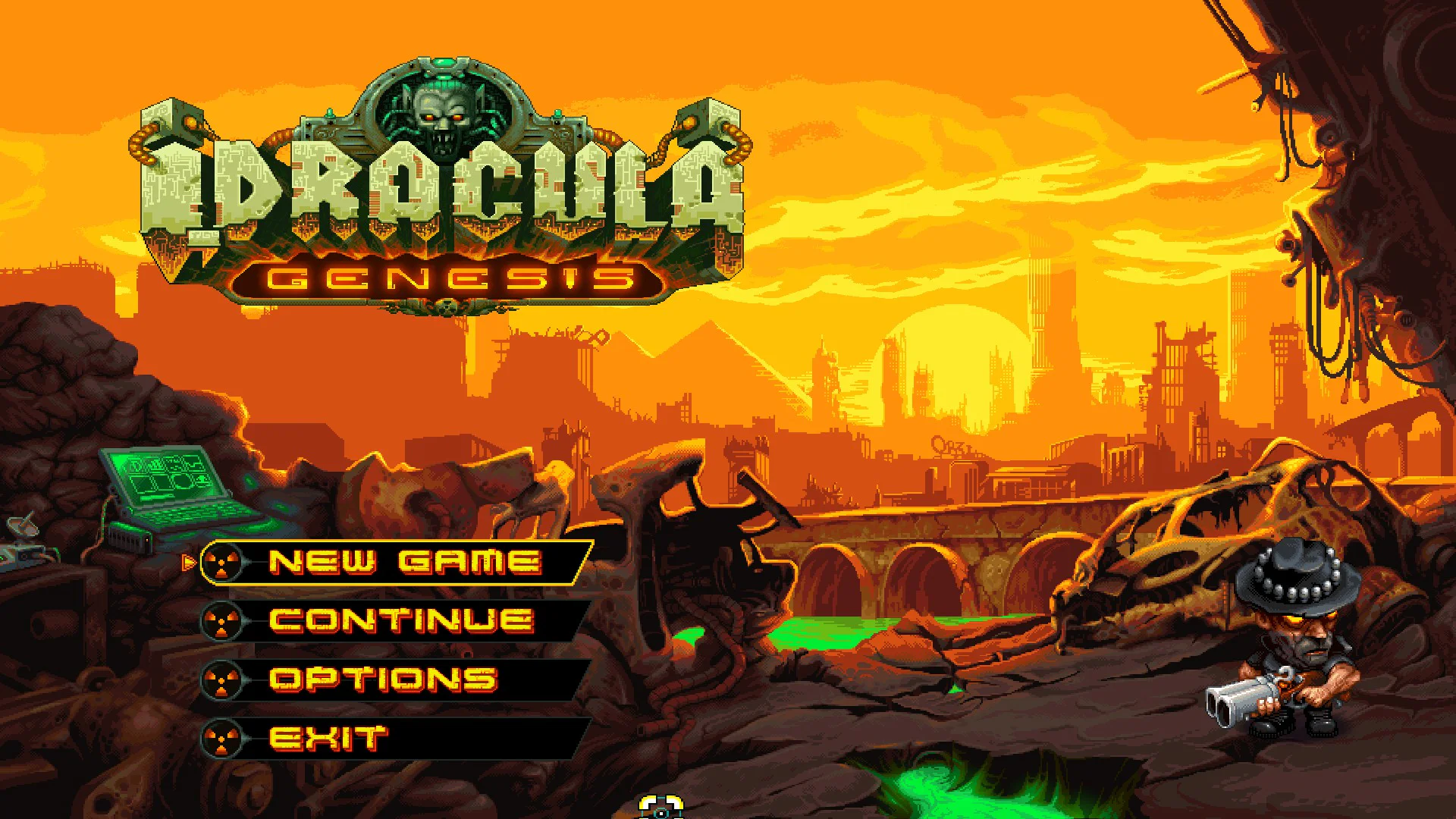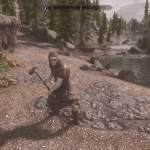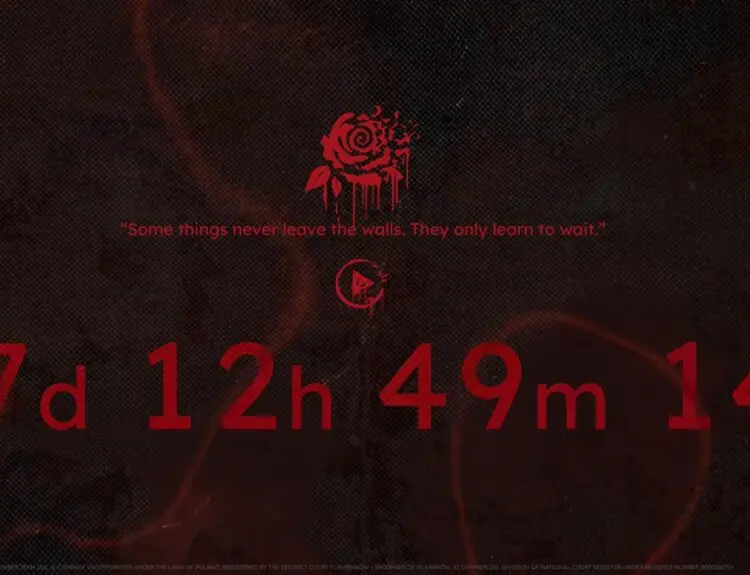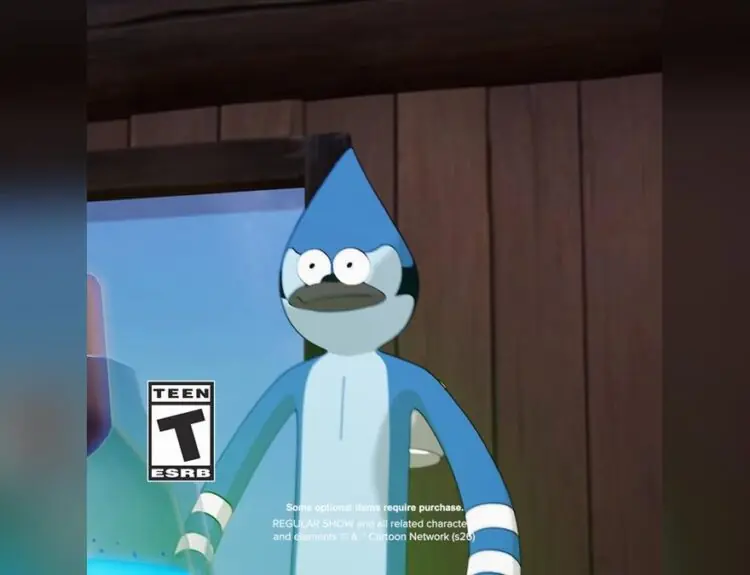Five years ago, the development studio MoreGames had a relatively simple idea: what if they could build the greatest roguelike possible? It’s an admittedly bold and ambitious statement to make in a world where we have Binding Of Isaac, Dead Cells, and a slew of other titles that have not only nailed the idea of a roguelike on the head but have done so while introducing a fantastic new world for players to immerse themselves in for hours on end. Further, this is the first title that MoreGames is releasing as a studio, and they’ve been developing I, Dracula: Genesis for five years thus far if their Steam page is anything to go on.
No pressure, right?
Hey guys, like you some gameplay?https://t.co/gxe23MibB3#idracula #gamedev #indie #shooter #roguelike #screenshotsaturday #ohwaititswednesday pic.twitter.com/LBtqIoBQt2
— 🦇 Doomsday Hunters (@imoregames) January 15, 2020
There’s a silver lining, however; I’ve managed to grab a copy of the alpha from MoreGames to offer my thoughts on the roguelike before it goes live on Steam in the Early Access program, and I’m thoroughly pleased with how well it plays out in its current form. It’s a brand-new dimension of roguelikes in an isometric form where each run tends to play out differently, and difficulty is found in spades while not being unfair to the player. The amount of content already in the game is almost staggering, and you’ll find each run offers unique challenges and rewards for someone that can play well enough.
Before we get into the metaphorical nitty-gritty, however, it’s worth adding a caveat; I’m playing (and minorly addicted to) an alpha version of I, Dracula: Genesis that is not currently available for sale. When the game does release on Steam in the Early Access program, various mechanics may have changed from what you’ll see here; that’s generally how development works. It’s safe to presume, however, that the primary gameplay loop and the majority of mechanics discussed here will remain in the title.
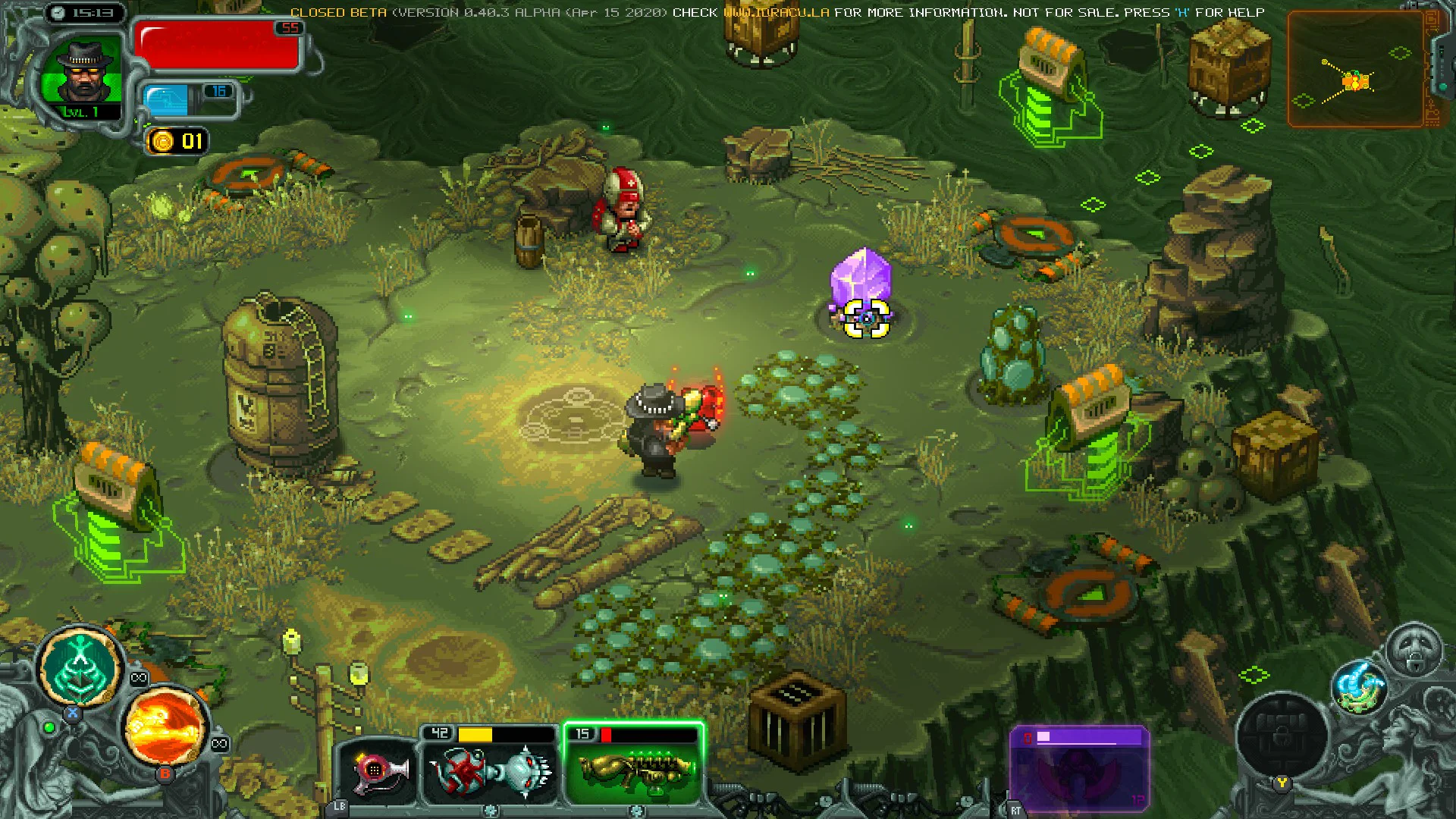
Gameplay screen – I, Dracula: Genesis via MoreGames
First, the story: Dracula is back yet again like the evil lord he is, and the Earth as we know it has ceased to exist. Toxic sludge is everywhere and has altered the landscape for the worse, to the point that humans can no longer live on the planet. Monsters and robots roam free, challenged only by a specific class of warriors known as Hunters. You take control of a Hunter of your choosing from a variety available on the roster, where each has their quirks and perks that can fundamentally alter your entire playstyle. There are four available in the alpha version that I’ve played, although the fourth still a work in progress; the first three were all viable in their own right.
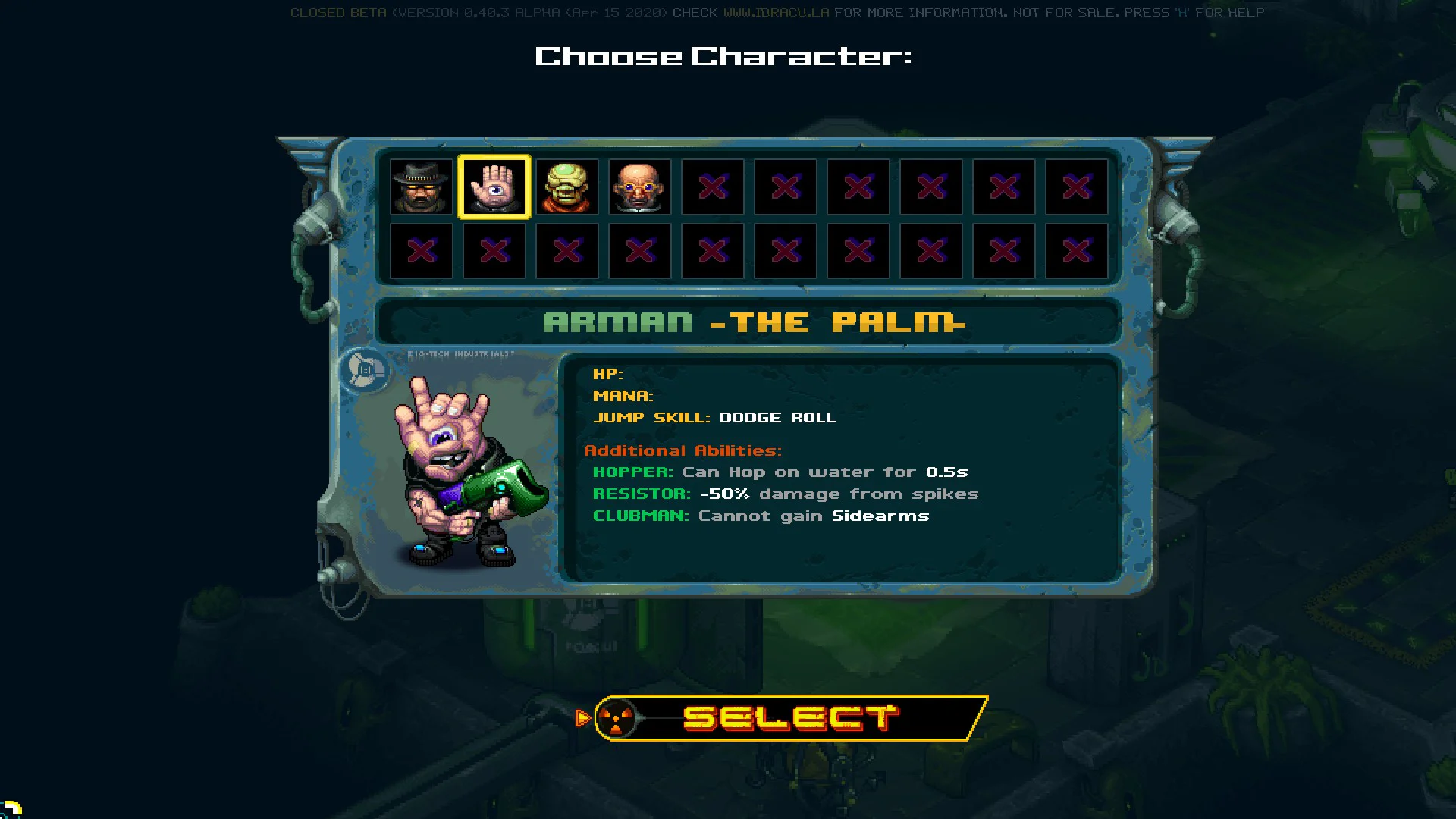
Character Select – I, Dracula: Genesis via MoreGames
Once you select your character, you then select a class that further adds variety to the current run; ranging from an Assassin class that adds movement speed and evasion to your hero to a Berserker class the buffs you max HP while sacrificing your MP, it’s all down to user preference. After you select your class (or bypass it entirely) there’s another kiosk that you can interact with that brings special global modifiers to your run, further enhancing the playstyle and accessibility of the title. We’re not necessarily looking at levels seen in Tangledeep; the vast majority of modifiers are focused on bringing even more difficulty to your playthroughs if the base game doesn’t already have your ego ripped to shreds.
Once you’re done selecting your character, you drop into the world on a single platform with four routes you can elect to go; each route will take you to a different island. Islands can have any variety of things for you to deal with, from NPCs that want to barter to a slew of enemies eager to remove your head from its precarious perch, and the exploration of each land is one of the ways that I, Dracula: Genesis truly shines at the moment. You never know when that next island is going to hold a fantastic new weapon that you’ve never seen, or an unrelenting storm of demons trying to murder you.
While map exploration is a given of any roguelike, it’s also worth noting that I, Dracula: Genesis has a pretty nifty teleporter system allowing you to immediately arrive at any island you’ve already explored; helpful when you’ve hit a dead-end on a route and need to backtrack a bit. The maps in later levels can get a bit more complex as well, with unique islands found if you’re willing to explore a bit farther off the beaten path.
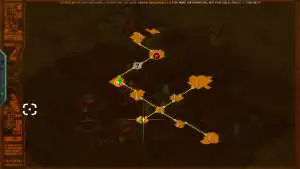
A fully explored map of the first level – I, Dracula: Genesis via MoreGames
The sheer amount of content that is already stuffed into the game is what helps this roguelike stand out well above the rest, in a genre that is becoming a bit of a stomping ground for developers looking to make a name for themselves. You can stumble into wormholes that bring new eccentric mini-games for you to conquer, and you’ll be handsomely rewarded if you can perform well in these outlandish bits that you’ll stumble upon.

A retro-styled mini-game through a wormhole has you collecting radiation coins – I, Dracula: Genesis via MoreGames
Beyond the quirky NPCs that you’ll meet and the veritable list of enemies and bosses that you’ll need to face (that are rapidly approaching a count of 200), there is also a tremendous host of weapons and abilities that you’ll be able to loot and purchase in your travels through I, Dracula: Genesis. During my hours of gameplay thus far, every run has introduced me to at least one new exotic weapon, assuming I lived long enough to see a weapon.
There can be a problem with that; sometimes players are simply unsure of how their new weapon will work, and limited ammunition for everything other than your side-arm means that exploring weaponry can be quite costly, resulting in you being unable to use it when you need it the most. Some weapons shoot out an appendage that is connected to the character, striking nearby enemies. Other weapons launch balls of electricity that can cause massive damage to an enemy foolish enough to stand in it; still others fire as you’d expect a rifle to. With the gigantic variety of weaponry, players have two options; stick to what they’re familiar with, or experiment and hope for the best.
In true roguelike fashion, these weapons and abilities can make or break your run, and that’s one area that I, Dracula: Genesis can struggle at, along with every other roguelike. Sometimes, RNG simply isn’t in your favor, and you can find yourself approaching a boss with little health and absolutely nothing in the arsenal to give you a fighting chance. These moments are blissfully rare and can be mitigated by ensuring that you fully explore each map you land upon, but that’s another risk versus reward; while each new island could give you wealth, it can also beat your face in with similar ease.
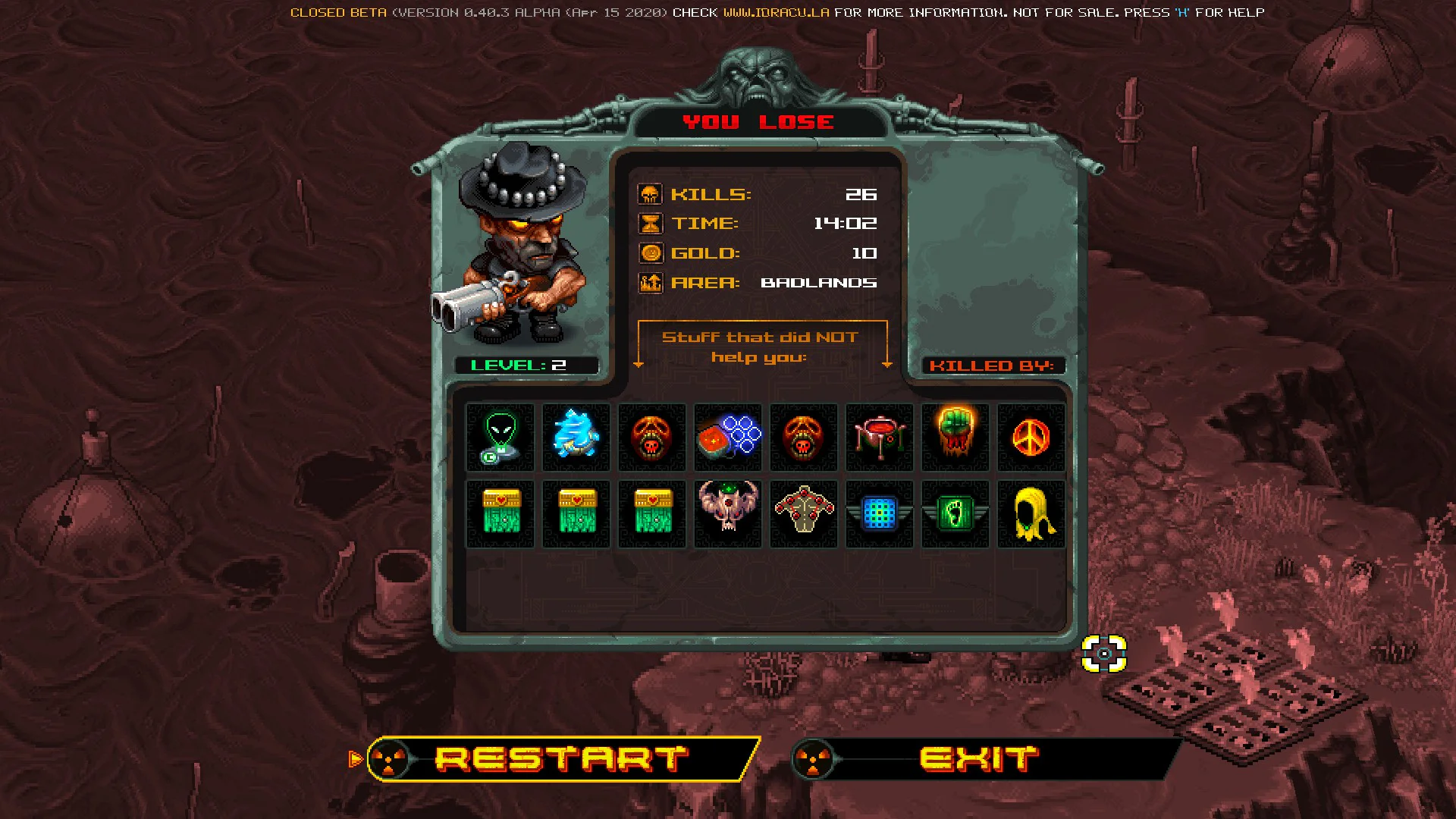
Thus, another run ends – I, Dracula: Genesis via MoreGames
If you happen upon weapons that you’re familiar with, or simply don’t fancy, you can opt to scrap them in the field, giving you coins for bartering later or receiving modifications that you can then immediately apply to whatever weaponry you’re currently holding. Abilities and curses can make your enemies stronger and arriving in greater numbers or can stack up your damage and critical hit chance. It all comes down to how you’re playing, and how you’re looking to build your current hero for the run.
I believe that is precisely what makes I, Dracula: Genesis such a strong title already, this far away from its release; the near obscene number of options that lets a player cut through the meaty content however they may prefer. It’s arguably one of the harder roguelikes that I’ve experienced in recent memory, yet that difficulty gives way when you begin to understand precisely how much power is in your hands with every run, as long as you can cut the proverbial mustard with your twin-stick shooting skills.
We’ll be paying attention to the movements of this title moving forward as it nears its release into Steam’s Early Access program and even closer scrutiny as it approaches its full release. For now, it may suffice to ready yourself for a unique new roguelike with tons of content. I, Dracula: Genesis is slated for an Early Access release onto Steam sometime in the near future; there is no word on whether or not the title may be coming to consoles.

